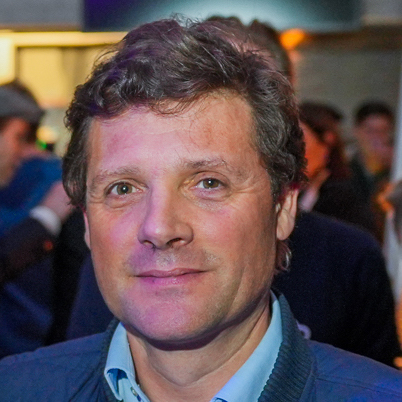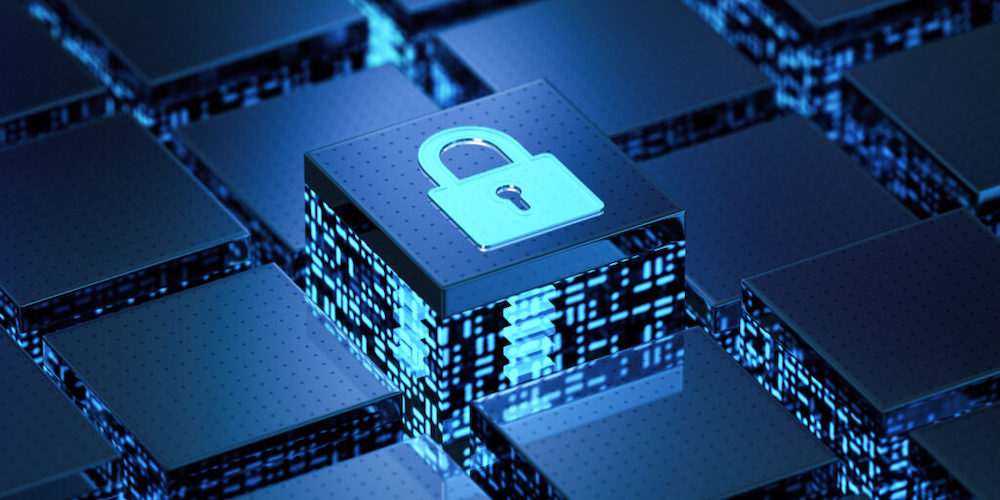(Editor’s note: We’re devoting this edition of the Eindhoven Business Briefing to our recent interview with Pim Tuyles, founder of Intrinsic ID. This interview was held on 3 November on High Tech Campus Eindhoven. This is part of Dispatches’ Tech Tuesdays series.)
Part of Dispatches Media’s business is connecting Dutch and European startups to investors in the United States. So, when we met Leuven, Belgium native Pim Tuyls recently, we recognized a kindred spirit. Tuyls is virtually unknown here in the Netherlands, yet his Eindhoven-based Intrinsic ID powers chip security in Silicon Valley and far beyond.

It’s a familiar story: Intrinsic ID started in 2008. As with Eindhoven’s most successful companies such as ASML and NXP, Intrinsic spun out of Philips. At the 15-year mark with Tuyls as the CEO, Intrinsic ID is a software/hardware firm with global clients, including some the biggest names in tech.
Since most of Intrinsic ID clients are in the semiconductor sector, Tuyls decided early on that he needed to move to Silicon Valley, where he’s lived for eight years. Unlike so many of the Dutch startups we work with, he didn’t hesitate to uproot his family and move to what he says was “a completely different society.”
But for all entrepreneurs, he says, it always comes down to what’s best for the company.
The techiest of tech
Intrinsic ID’s secret sauce is physical unclonable functions, or PUFs, the unique physical variations in chips – the “fingerprints.” The technology is based on the biometrics of chips – the fact that due to manufacturing irregularities, each computer chip is slightly different.
Think snowflakes.
“The chips of NXP do the same thing. But look at them under a microscope and you see that each one is slightly different,” Tuyls says. That fact enables Intrinsic ID to assure clients are getting “secure boots,” connecting only to software OEMs determine to be secure to avoid data breaches and prevent the hacking of embedded systems and IoT-connected devices.
As you can imagine, a lot of clients are in the high-security sector, including governments. For example, Tuyls confirms that U.S. agencies are clients but declined to say more than that.
Asked if AI will make chip security more difficult, Tuyls replies that Intrinsic will use AI to counter attackers using AI. “We will have to protect against these attackers.”
In the 15 years since Tuyls founded Intrinsic ID, the company has secured more than 615 million devices for top-tier clients such as Micron, NXP and Intel. Silicon Valley “is the center of gravity” for the semiconductor industry, he says, and the company’s U.S. headquarters is Sunnyvale, Calif., the heart of the heart of The Valley.
“Now, I live, let’s say, within a 30-minute drive or so from all our main customers. So, I’m there. I can easily respond, I can go when they call. When you’re the guy that flies in on Sunday and leaves on Friday, they don’t feel you’re committed to it.” When global tech companies work with startups, they want the CEOs close at hand, Tuyls says. “Because for big companies, if they bet on the products or technology of a small company, they want to be sure that they’re going to be (supported).”
His advice to Dutch startups? “Go to the U.S. earlier.” But that doesn’t necessarily mean turning your back on the Netherlands and Europe.
Multi-national model for startups?
When startups start raising capital from venture capital firms, especially Sand Hill Road VCs, investors typically want “to flip” the startup, relocating them to The Valley, Tuyls says. Can Dutch startups keep their identities and still do business in the world’s largest market?
“We’ve done it, so it certainly can be done,” he said.
Intrinsic ID has offices all over the world, but the majority of the engineering team is working out of Eindhoven/High Tech Campus, says Sander Arts, a San Jose-based independent consultant and investor, and a Dutch native.
“I believe Intrinsic ID is a blueprint for what Europe and the Netherlands are trying to build.”
Of course, if you go for funding from a big U.S.-based VC, certainly Silicon Valley VCs, they’ll probably want to flip your company. “Which, again, has its advantages and disadvantages, but I don’t see that path as the major blocking factor,” Tuyls said. The major blocking factor, he said, is a mindset – the mindset of Dutch startups that they can succeed with the status quo; without making painful sacrifices.
“That’s also how you have to look like when you’re building a company here. Is it the best for the company to go to the U.S.? Yes or no?” The U.S is one market he said, whereas Europe is many markets with different rules and languages, Tuyls says.
But it’s more than that … it’s the confidence and chutzpah.
His son graduated from Los Altos High School. At the graduation ceremony, the valedictorian takes the stage “and the first sentence he says is, ‘This is a school where the leaders of the future are made.’ The guy is 17 years old!” That would never, ever happen in Europe, he says.
“Maybe it’s all America; maybe it’s California. But I want to say that that’s the perspective that Americans come from. Whether it’s right or wrong, I don’t know. But that’s how it is.
“That’s the American outlook.”
–––––––––––
Read more about tech here in Dispatches’ archives.
Co-CEO of Dispatches Europe. A former military reporter, I'm a serial expat who has lived in France, Turkey, Germany and the Netherlands.















